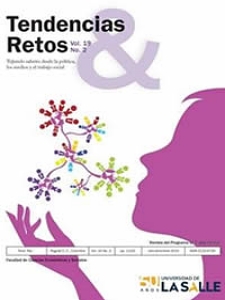Abstract
This paper critically and reflectively examines Enrique Dussel’s arguments in his ethics of liberation, tending to validate the extraction of moral imperatives from certain “facts” regarding the reproduction of life. Furthermore, the effects of this theoretical contribution are measured within the framework of the relationship between ethics and social sciences. Finally, we conjecture about Dussel’s possible fluctuating positioning, from a rather messianic argument to a less vanguard and more coparticipatory and co-productive idea about inhabiting the world and resisting domination.Downloads
Download data is not yet available.



